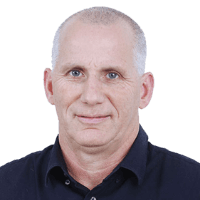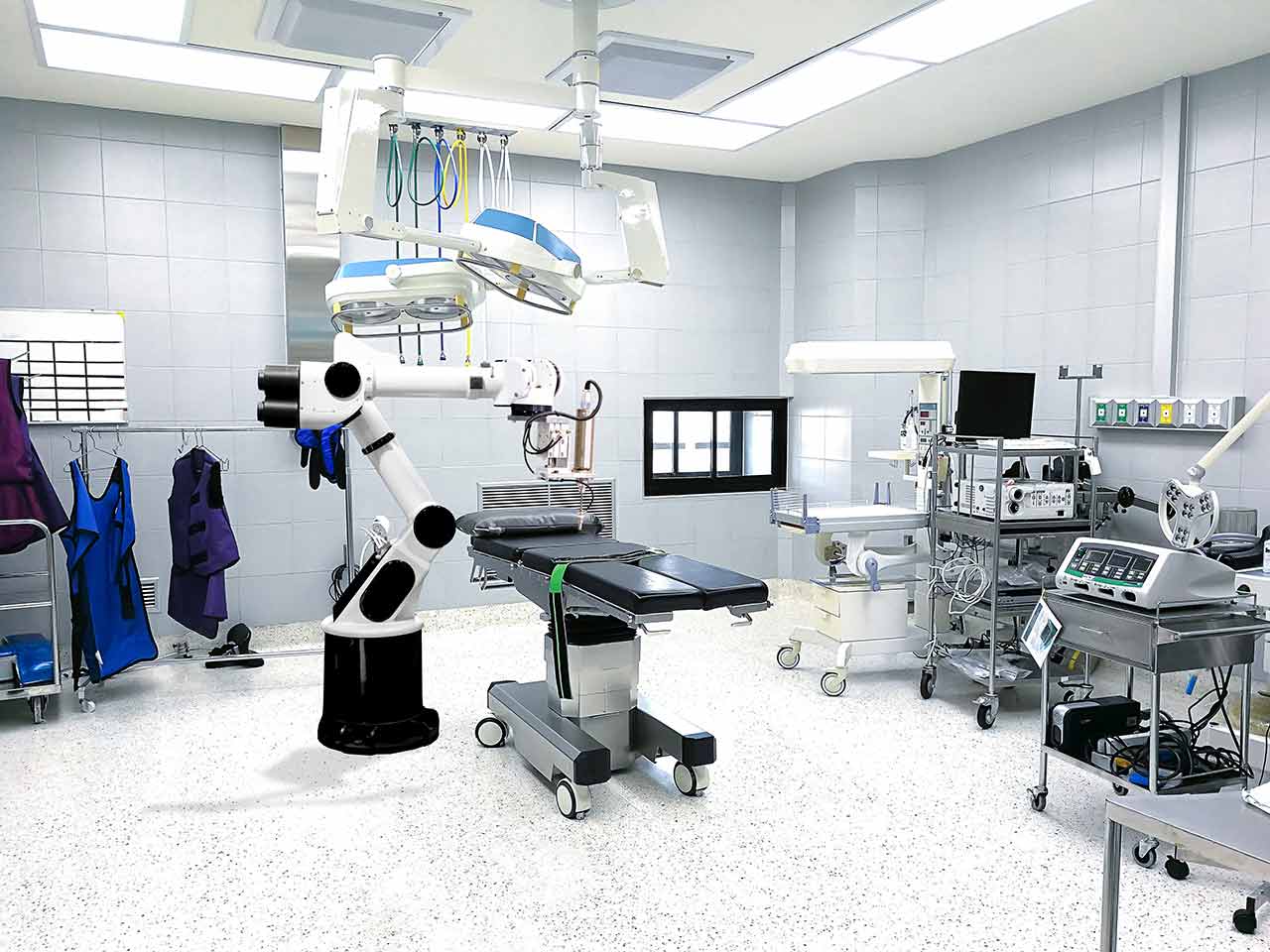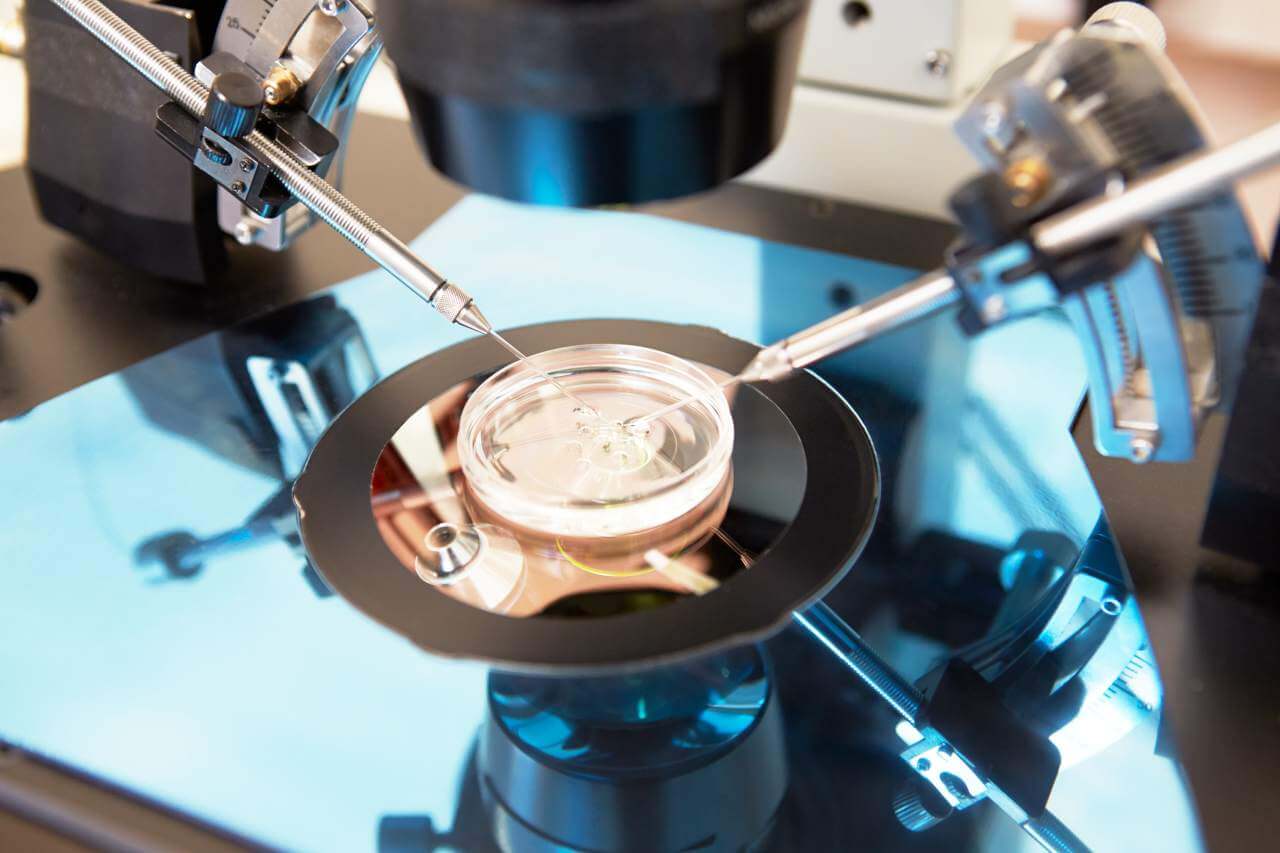
The program includes:
- Initial presentation in the clinic
- clinical history taking
- review of medical records
- physical examination
- laboratory tests:
- complete blood count
- biochemical analysis of blood
- TSH-basal, fT3, fT4
- tumor markers
- inflammation indicators (CRP, ESR)
- indicators of blood coagulation
- ultrasound scan
- chemotherapy (1 course)
- cost of required medications
- nursing services
- consultations of related specialists
- treatment by head physician and leading experts
- explanation of individual treatment plan
How program is carried out
During the first visit, the doctor will conduct a clinical examination and go through the results of previous laboratory tests and instrumental examinations. After that, you will undergo an additional examination, including laboratory assessment of liver and kidney function, ultrasound scan. Based on the received results, the doctor will elaborate the chemotherapy regimen. If necessary, related medical specialists will be involved in the elaboration of a treatment regimen (tumor board).
Chemotherapy is carried out as the day hospital procedure, without mandatory admission to the hospital. After the placement of a venous catheter, you will stay in a comfortable ward. An infusion system will be connected to the catheter, through which the required drug or a drug combination will be administered. All drugs are administered by intravenous drip, slowly, so the total duration of the infusion can be up to several hours. All this time, doctors and nurses will monitor your health condition closely.
After the course of chemotherapy, you will stay under medical supervision in the ward for a few more hours. If your general condition is good, your doctor will allow you to leave the hospital. You will receive the medical report with detailed recommendations regarding further treatment. In the future, you will be able to have a distant consultation with your attending physician and schedule the next course of chemotherapy, if necessary.
Required documents
- Medical records
- MRI/CT scan (not older than 3 months)
- Biopsy results (if available)
Service
You may also book:
 BookingHealth Price from:
BookingHealth Price from:
About the department
The Department of Adult and Pediatric Oncology, Oncohematology at the Sheba Medical Center Ramat Gan offers the high-precision diagnostics and comprehensive treatment of solid tumors of various localization, as well as malignant blood diseases in patients of all age groups, including children. The department is the largest and leading Cancer Center in the country. In 2010, the medical facility began its close cooperation with the University of Texas MD Anderson Cancer Center, which has been ranked among the best Cancer Centers in the United States for more than 10 years in a row. The department's medical team applies in its clinical practice the most advanced cancer treatments, and also provides patients and their families with professional psychological and social support. Since each clinical case is unique, oncologists develop an individual treatment regimen for each patient, taking into account age, genetic characteristics, type and location of cancer, stage of the disease, family medical history, general state of health and other important factors. The department annually treats more than 50,000 patients with cancers of varying severity. A large number of cancer patients come from abroad. The trust of thousands of patients testifies to the excellent reputation of the medical facility and the highest quality of medical care. The Chief Physician of the department is Prof. Dr. med. Raanan Berger.
A well-coordinated work of the department's doctors plays a key role in ensuring the effective treatment of patients. The highly professional medical specialists take care of the patients' health. Each of them underwent a thorough training in the treatment of particular types of cancer. The medical team has vast clinical experience, which helps to successfully cope with the most complex types of cancer. The close cooperation of different specialists allows them to establish the most accurate diagnosis and elaborate the optimal treatment regimen for each patient. An integral part of the therapeutic process is psychological, social and palliative care. The department's specialists understand that such a diagnosis as cancer becomes a heavy burden not only for the patient, but also for his relatives, and therefore they show compassion, understanding and surround the patient with maximum care.
The department has an excellent medical and technical base for comprehensive diagnostics. The oncologists widely use biomarker testing, biopsy, cytogenetic and immunohistochemical examinations, ultrasound scanning and radiography, computed tomography, magnetic resonance imaging, positron emission tomography, interventional endoscopic procedures, scintigraphy and other diagnostic methods, which provide detailed information about the patient's health. The set of necessary diagnostic tests is selected individually, depending on particular complaints, symptoms and medical history.
With the diagnostic results obtained, oncologists assess the clinical case and begin to develop the optimal treatment regimen, which will allow the patient to completely get rid of cancer or achieve the longest possible remission. The department offers the widest range of modern treatments, the effectiveness of which is internationally recognized. The specialists competently combine the necessary therapeutic measures in order to achieve high treatment efficiency with a minimum number of side effects. If diagnosed with a solid tumor, in most cases, the first line treatment is surgical resection of the neoplasm. The surgical treatment is carried out in collaboration with surgeons. If possible, the specialists try to perform surgery using sparing minimally invasive techniques, which exclude damage to healthy tissues and guarantee speedy recovery after surgery. However, a single surgical procedure is often not enough to completely cure cancer. The department's oncologists additionally prescribe chemotherapy to patients using the most modern and effective drugs (trastuzumab, bevacizumab, cetuximab, erlotinib, sunitinib, imatinib, etc.), radiation therapy (external beam radiation therapy and internal radiation therapy), targeted therapy and immunotherapy. The required type of therapy is determined according to a particular diagnosis and individual clinical indications. In the case of blood cancer, chemotherapy is the first line therapy, while in particularly complex clinical cases, the department's doctors resort to bone marrow transplantation. The department also successfully uses innovative CAR-T cell therapy for the treatment of certain types of blood cancer (for example, acute lymphoblastic leukemia, acute myeloid leukemia, multiple myeloma). The essence of the therapy lies in genetic programming of the patient's own leukocytes for the destruction of cancer cells. With the help of high-tech equipment, leukocytes are separated from the rest of the blood mass. Within the specialized laboratory, the resulting leukocytes undergo genetic modification in order to express chimeric antigen receptors (CAR). Then, they are multiplied in the laboratory until the specialists obtain millions of modified cells and return them to the patient's body using an infusion.
The department specializes in the treatment of oncological and hematological diseases in children. It annually treats about 1,200 children on an inpatient basis and 4,000 children on an outpatient basis. It is worth noting that the department is one of the few in the world, which successfully implemented the principle of treating children "without pain", so all therapeutic procedures for young patients are absolutely painless. When developing a treatment program for a child with cancer, the doctors take into account his age, general health and the characteristics of the growing organism. The doctors of the department pay great attention to the emotional state of each young patient, since any therapeutic manipulations cause fear in children. Malignant hematologic diseases develop in children much more often than solid neoplasms. The department's medical team specializes in the treatment of such blood cancers in children as acute myeloid leukemia, acute lymphocytic leukemia, chronic myeloid leukemia, Hodgkin lymphoma and non-Hodgkin's lymphomas. To treat the above diseases, the department uses chemotherapy, bone marrow transplantation and CAR-T cell therapy. Brain neoplasms (glioma, astrocytoma, medulloblastoma), as well as bone and soft tissue tumors (Ewing's sarcoma, osteosarcoma) are among the most diagnosed solid malignancies in children. The methods of treating solid tumors in children do not differ from those used in adults. These include surgical resection, chemotherapy, radiation therapy and immunotherapy.
The department specializes in the diagnostics and treatment of the following malignancies:
- Malignant solid tumors in adults
- Brain cancer
- Throat cancer
- Thyroid cancer
- Tongue cancer
- Lymph node cancer
- Gastrointestinal cancer, liver and pancreatic cancer
- Bladder cancer
- Gallbladder cancer
- Adrenal cancer
- Kidney cancer
- Lung cancer
- Melanoma and other types of skin cancer
- Spinal tumors
- Bone and soft tissue tumors
- Breast cancer
- Cancer of the female genital organs
- Uterine and cervical cancer
- Ovarian cancer
- Vulvar cancer
- Vaginal cancer
- Fallopian tube cancer
- Cancer of the male genital organs
- Prostate cancer
- Testicular cancer
- Malignant solid tumors in children
- Astrocytoma
- Glioma
- Medulloblastoma
- Neuroblastoma
- Wilms' tumor
- Osteosarcoma
- Ewing's sarcoma
- Rhabdomyosarcoma
- Malignant blood diseases in adults
- Acute myeloid leukemia (AML)
- Acute lymphoblastic leukemia (ALL)
- Chronic myeloid leukemia (CML)
- Chronic lymphocytic leukemia (CLL)
- Non-Hodgkin lymphomas
- Hodgkin lymphoma
- Multiple myeloma
- Myelofibrosis
- Myelodysplastic syndrome (MDS)
- Malignant blood diseases in children
- Acute myeloid leukemia (AML)
- Acute lymphocytic leukemia (ALL)
- Chronic myeloid leukemia (CML)
- Non-Hodgkin lymphomas
- Hodgkin lymphoma
- Other types of cancer
The diagnostic and therapeutic options of the department include:
- Diagnostics
- Laboratory tests, including tumor marker testing
- Biopsy with further histological and cytological examinations
- Ultrasound scanning
- X-ray
- Computed tomography
- Magnetic resonance imaging
- Positron emission tomography
- Scintigraphy
- Treatment
- Surgical resection of solid tumors
- Chemotherapy
- Radiation therapy (external beam radiation therapy and internal radiation therapy)
- Targeted therapy
- Immunotherapy
- CAR-T cell therapy for blood cancers
- Bone marrow transplantation for blood cancers (autologous and allogeneic transplantation)
- Other diagnostic and treatment methods
Curriculum vitae
Prof. Dr. med. Raanan Berger is the Head of the Department of Adult and Pediatric Oncology, Oncohematology at the Sheba Medical Center Ramat Gan. The specialist received his medical education at the Sackler Faculty of Medicine at Tel Aviv University. After four years of postgraduate training, Dr. Raanan Berger defended his thesis on the specific control differentiating gene Thymopoietin/LAP2, which allowed him to better understand the processes of formation of immune, including antitumor protection in the human body. The specialist underwent training in the field of urologic oncology and urogynecology at the Dana-Farber Cancer Institute of the Harvard Medical School, Boston (USA) studying the issues of modern diagnostics and treatment of prostate cancer.
Prof. Berger is the initiator and creator of the support service in the Department of Adult and Pediatric Oncology, Oncohematology at the Sheba Medical Center Ramat Gan, which provides patients and their families with comprehensive treatment. The patients receive not only the most modern medical services, but also the support from specially trained psychologists and social workers who work with each patient and his family members individually. Prof. Raanan Berger leads the program for the treatment of genitourinary cancer, and is also the Head of the Research Laboratory, which studies the molecular mechanisms in the formation of tumors in the prostate gland and breast.
Dr. Berger is a member of the European and American Society for Medical Oncology. In addition, the professor is a lecturer on oncology at the Sackler Faculty of Medicine at Tel Aviv University. The professor's special clinical interests include the treatment of prostate and testicular cancer, breast cancer, kidney cancer, bladder and ureter cancer.
Photo of the doctor: (c) Sheba Medical Center
About hospital
The Sheba Medical Center Ramat Gan is the largest and leading Israeli hospital, which has also won wide recognition in the international medical arena. The hospital was founded in 1948 and today it is proud of its long and extremely successful clinical experience. The medical facility has 159 specialized departments, outpatient clinics and centers, as well as 75 laboratories. The infrastructure of the center forms a solid basis for the accurate diagnostics, comprehensive and the most effective treatment of pathologies in all fields of modern medicine.
According to the prestigious American Newsweek magazine, the medical center ranked among the top ten best hospitals in the world in 2019 – the rating is based on the efficiency of medical care, the level of service, compliance with international quality standards. In addition, the medical centre is the holder of the international JCI certificate, which is awarded only to the best hospitals all over the world.
The medical complex provides patients with the most advanced medical treatment and individual approach to each clinical case. If necessary, the patient can take part in clinical trials of new pharmaceuticals or treatment methods. The patients are offered high-tech medicine. For example, it houses the only virtual reality Rehabilitation Center in the world, as well as offers exclusive and progressive methods of imaging diagnostics for patients suffering from cancers and cardiovascular diseases.
One of the leading fields of the medical center is oncology. Cancer of various localizations is treated within the specialized Cancer Center. Thanks to the hospital's own unique developments in the field of oncology and cooperation with the University of Texas MD Anderson Cancer Center, the doctors practice innovative treatment protocols, which allow them to achieve complete cure or long-term remission even in the cases that are considered hopeless in many hospitals around the world.
Certainly, the key role in the success of clinical practice is also played by the presence of highly qualified personnel – the hospital employs dozens of leading doctors, including world-class professionals. Many doctors are lecturers at the Sackler School of Medicine of the Tel Aviv University. In addition to the treatment of patients, they are engaged in research activities and make an invaluable contribution to the development of medicine in Israel and around the world.
The hospital admits annually more than 430,000 patients for the diagnostics and treatment on an inpatient basis, while the number of outpatients reaches 160,000. These figures speak for themselves and confirm the authority of the medical center, which is ready to provide high-quality medical care to both Israeli citizens and foreign patients from all over the world. The hospital also performs about 50,000 surgical interventions, as well as more than 11,000 babies are born in the delivery rooms of the medical center every year.
The Sheba Medical Center Ramat Gan is rightfully considered the world leader in the field of medical care and has all the necessary medical and technical resources for providing both diagnostic and therapeutic procedures of any complexity – some of them are not available even in the developed countries of Europe and the USA.
Photo: (c) Sheba Medical Center, (c) depositphotos
Accommodation in hospital
Patients rooms
The patients of the Sheba Medical Center Ramat Gan live in cozy rooms with a high level of comfort. Each patient room has an ensuite bathroom with shower and toilet, with all the necessary hygiene items. The furnishing of the rooms includes a comfortable automatically adjustable bed, a bedside table, a wardrobe, a telephone, a TV, an air conditioner. Wi-Fi access is also available in the patient rooms. The center has special rooms for children. The special atmosphere of coziness and kindness allows young patients to feel as comfortable as possible.
Meals and Menus
The patient and the accompanying person are offered tasty and balanced three meals a day. If for some reason you do not eat all foods, you will be offered an individual menu. Please inform the medical staff about your food preferences prior to treatment.
Further details
Standard rooms include:
Accompanying person
During the inpatient program, the accompanying person can live with the patient in a patient room or a hotel of his choice. Our managers will help you choose the most suitable option.
Hotel
During an outpatient program, the patient can stay at the hotel on the territory of the medical center or at the hotel of his choice. Our managers will help you choose the most suitable option.





